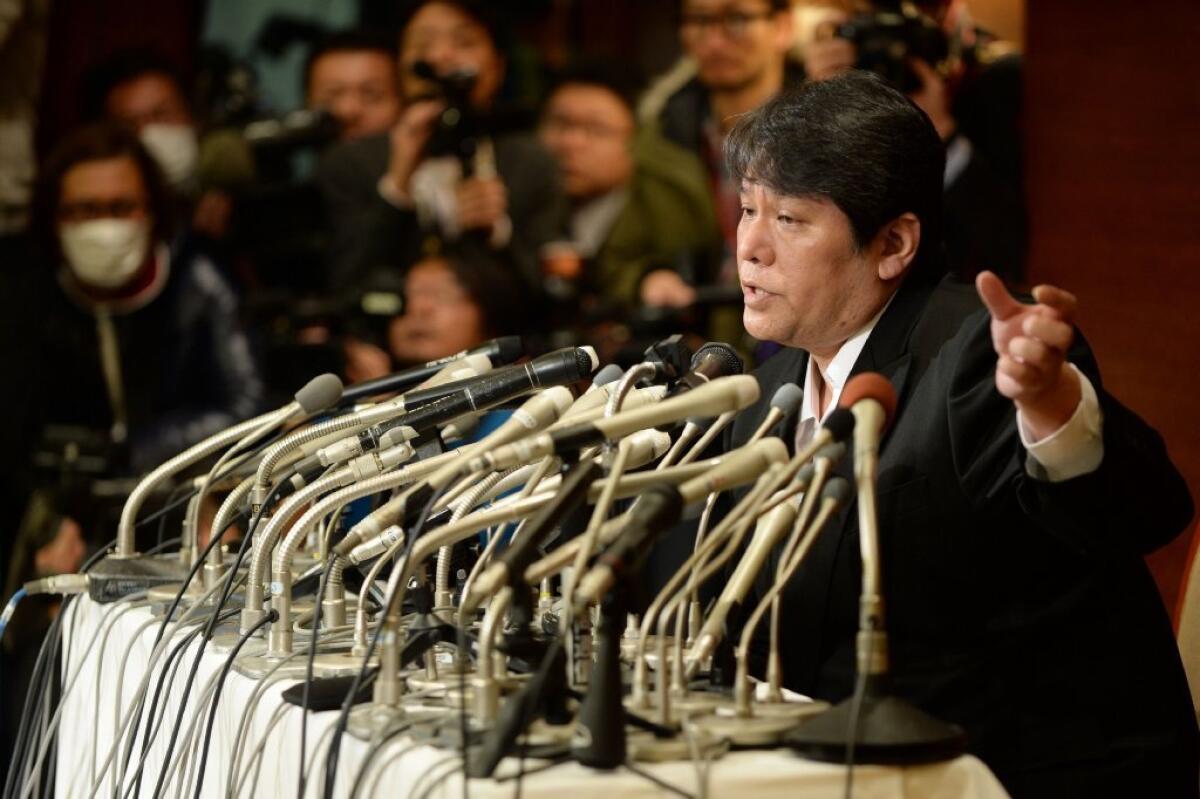Mamoru Samuragochi, disgraced Japanese composer, apologizes for lies

He isn’t completely deaf. He didn’t really compose his own music. And now he’s sorry for lying about it.
Mamoru Samuragochi, the composer who was once popularly referred to as the Beethoven of Japan, appeared at a news conference in Tokyo on Friday and apologized for deceiving the public.
“I have caused a great deal of trouble with my lies for everyone, including those people who bought my CDs and came to my concerts,” he said, according to a report from Reuters.
GRAPHIC: Highest-earning conductors
In February, it was revealed that Samuragochi had employed a ghost writer to compose his symphonies and other music, and that his claims to being totally deaf weren’t true. The revelations created a scandal in Japan, where Samuragochi has long been one of the country’s most popular contemporary classical composers.
Most of his music was written by Takashi Niigaki, a university teacher. The ghostwritten pieces include his popular “Sonatina for Violin,” which was used by Japanese figure skater Daisuke Takahashi at the recent Winter Olympics in Sochi, Russia.
Friday’s news conference reportedly lasted nearly three hours. Samuragochi’s trademark long hair had been cut short.
“I wrote out what I wanted and the general plans, then Niigaki wrote the music,” Samuragochi said, according to Reuters. He said he wasn’t totally deaf but is hearing impaired and needs a translator. Reports said that Friday’s news conference was translated for Samuragochi by a sign-language interpreter.
PHOTOS: Arts and culture in pictures by The Times
The 50-year-old Samuragochi worked with the ghostwriter Niigaki since at least 1996. Their pieces include the Symphony No. 1, “Hiroshima,” a tribute to the victims of the 1945 atom bomb.
Niigaki had previously spoken about his working relationship with Samuragochi, saying that he had written more than 20 pieces for him. He also claimed that Samuragochi appeared to have no problems hearing.
Samuragochi, who disputes some of Niigaki’s claims, had earned his nickname of the Beethoven of Japan because of the 19th century German composer’s deafness.
At Friday’s news conference, he confirmed Niigaki’s contention that he is only able to play introductory-level piano, according to a report in the Wall Street Journal.
The scandal has caused a media storm in Japan, where Samuragochi had long been a fixture on national television and a subject of numerous print articles.
ALSO:
Robert Ashley, a true pioneer in opera
Jane and Marc Nathanson to sell three works from collection
After ‘Spider-Man,’ Foxwoods Theatre to be renamed the Lyric
More to Read
The biggest entertainment stories
Get our big stories about Hollywood, film, television, music, arts, culture and more right in your inbox as soon as they publish.
You may occasionally receive promotional content from the Los Angeles Times.







